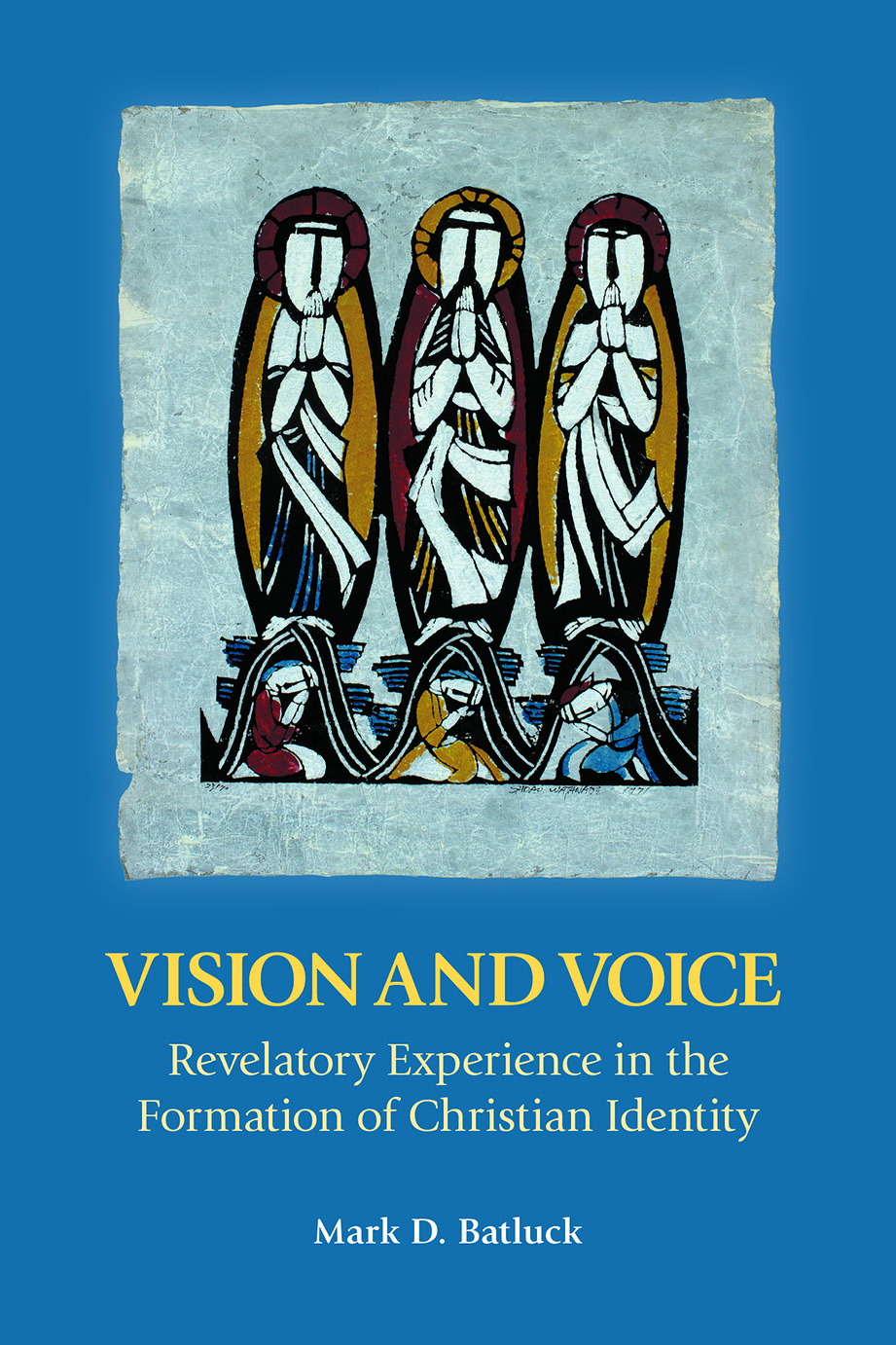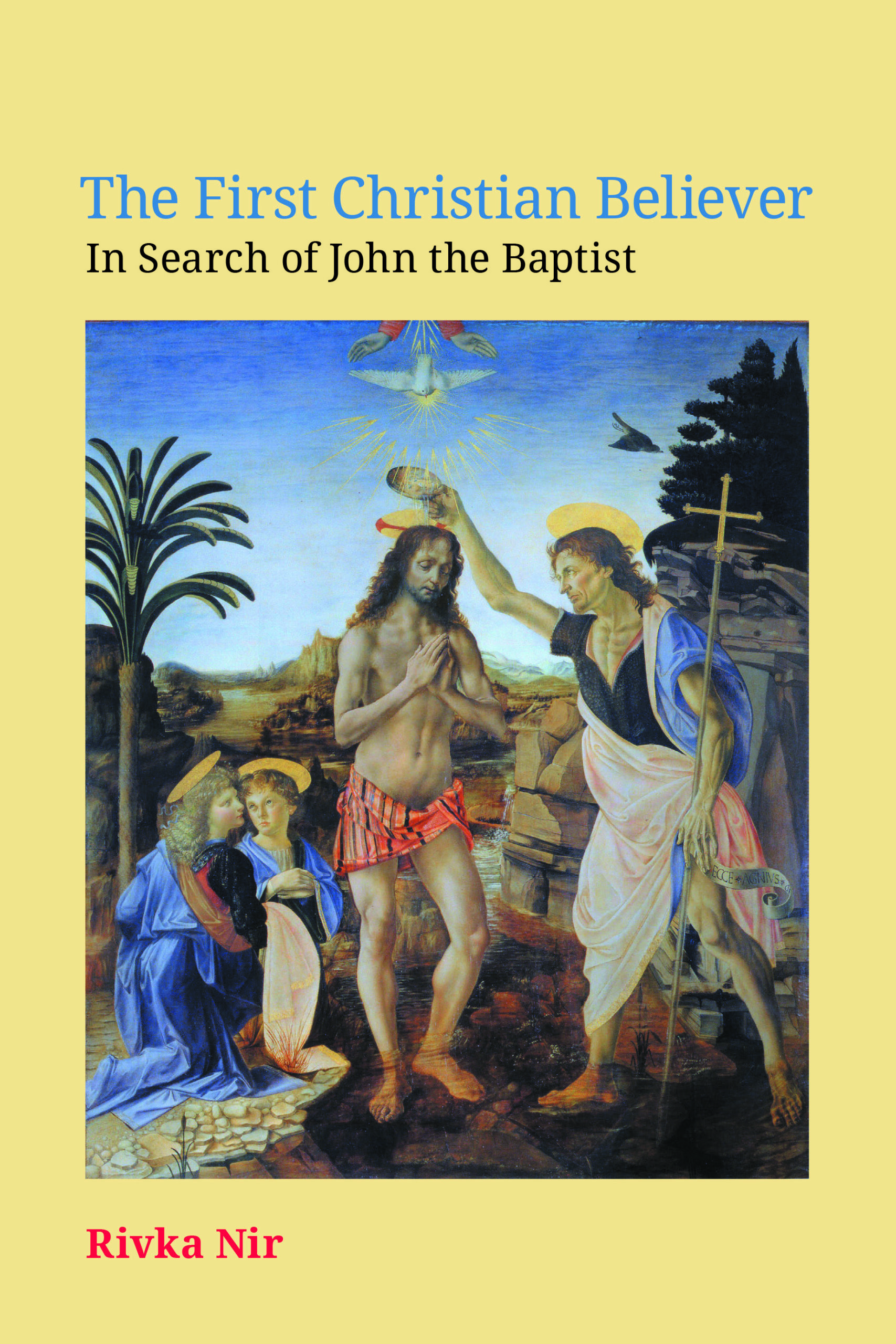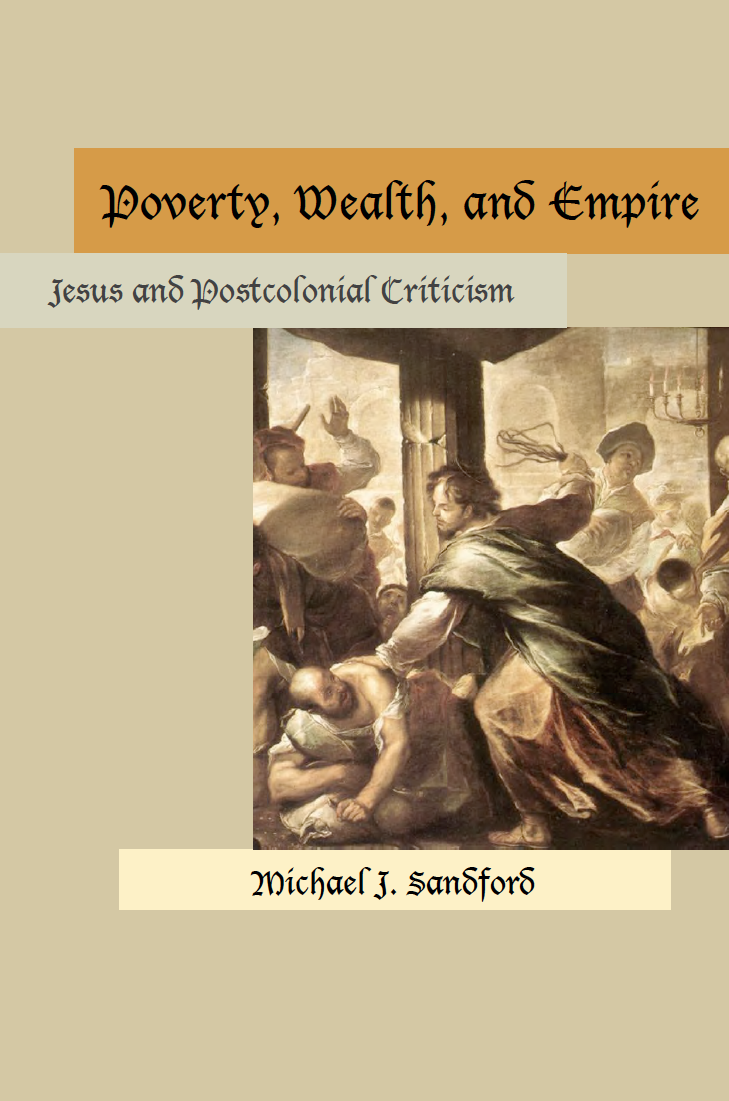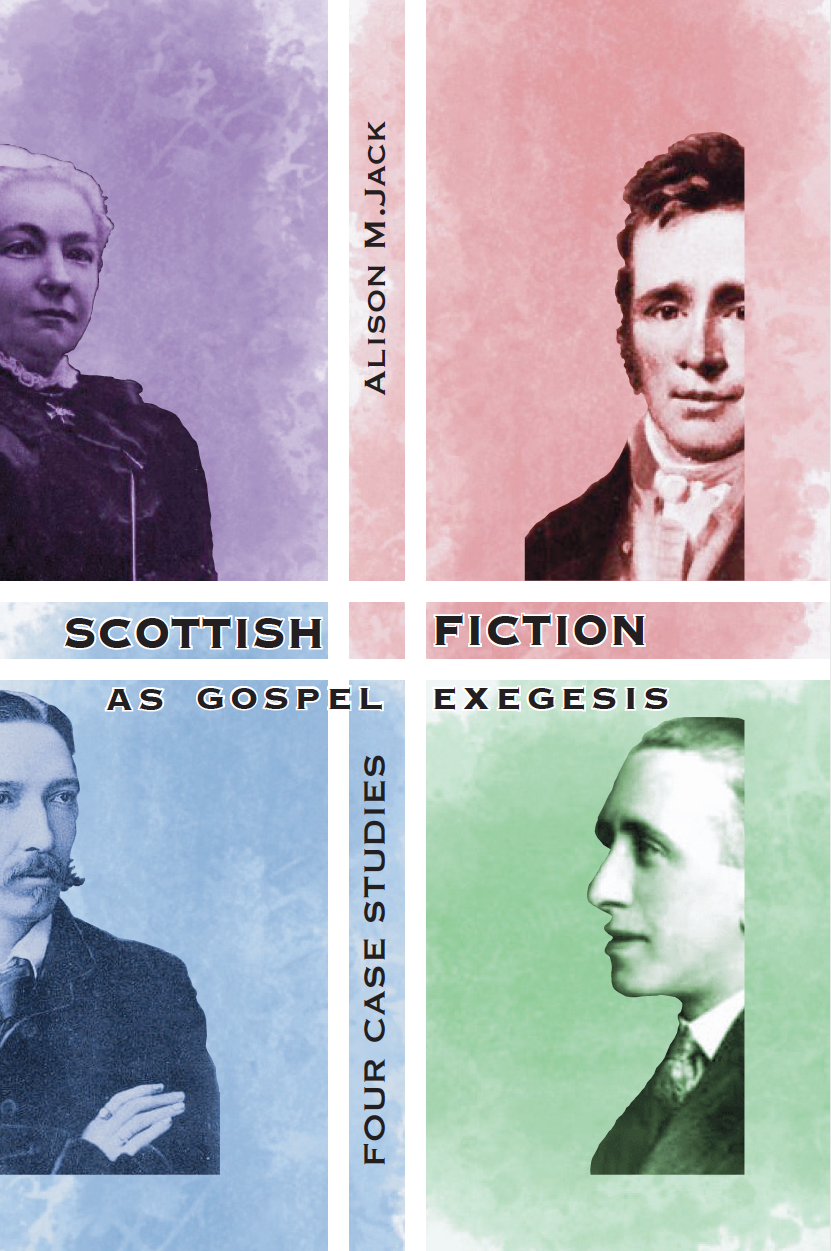Vision and Voice: Revelatory Experience in the Formation of Christian Identity
Published: Oct 2021
£60.00
Vision and Voice explores the impact of revelatory events (such as visions and voices) upon early Christian self-identity. In the Gospels, revelatory events, like the transfiguration, the voice from heaven in John 12, and Jesus' baptism, burst into the narrative almost gratuitously, without leaving a tangible, lasting impression on those who witness them. Yet from these revelatory experiences there emerged a story of how early Christians came to think of themselves as a community of Jesus followers. The revelatory events of the Gospels became an invitation to their readers to enter into the experience of Jesus' disciples, to see what they saw, to hear what they heard, reliving the visions and voices remembered by these first witnesses.
Vision and Voice: Revelatory Experience in the Formation of Christian Identity
£60.00
Vision and Voice explores the impact of revelatory events (such as visions and voices) upon early Christian self-identity. In the Gospels, revelatory events, like the transfiguration, the voice from heaven in John 12, and Jesus' baptism, burst into the narrative almost gratuitously, without leaving a tangible, lasting impression on those who witness them. Yet from these revelatory experiences there emerged a story of how early Christians came to think of themselves as a community of Jesus followers. The revelatory events of the Gospels became an invitation to their readers to enter into the experience of Jesus' disciples, to see what they saw, to hear what they heard, reliving the visions and voices remembered by these first witnesses.
Spirit and Story: Essays in Honour of John Christopher Thomas
Published: Nov 2020
£70.00
This collection of essays brings together an international group of biblical scholars, theologians, and historians who are committed to readings of biblical texts that are sensitive to the work of the Spirit. Perhaps no one has contributed more in recent decades to the description and promotion of Pentecostal Theology than Chris Thomas, and this volume serves as a loving and respectful tribute to his commitment and achievement.
Thomas's own work on the story told in the Gospel and Letters of John as well as his explorations into the narrative structure of the Apocalypse are models not only of exegetical proficiency but also of the careful elucidation of the text for the general reader as well as the expert. Moreover, his work is distinguished by a prayerful pastoral commitment as his ear is consistently attentive to what the Spirit is saying to the church.
The influence of Chris Thomas has been very considerable. The essays presented here capture the scope of his interests and of his important contribution to both the church and the academy.
Spirit and Story: Essays in Honour of John Christopher Thomas
£70.00
This collection of essays brings together an international group of biblical scholars, theologians, and historians who are committed to readings of biblical texts that are sensitive to the work of the Spirit. Perhaps no one has contributed more in recent decades to the description and promotion of Pentecostal Theology than Chris Thomas, and this volume serves as a loving and respectful tribute to his commitment and achievement.
Thomas's own work on the story told in the Gospel and Letters of John as well as his explorations into the narrative structure of the Apocalypse are models not only of exegetical proficiency but also of the careful elucidation of the text for the general reader as well as the expert. Moreover, his work is distinguished by a prayerful pastoral commitment as his ear is consistently attentive to what the Spirit is saying to the church.
The influence of Chris Thomas has been very considerable. The essays presented here capture the scope of his interests and of his important contribution to both the church and the academy.
The First Christian Believer: In Search of John the Baptist
Published: May 2019
£65.00
Current research on John the Baptist is fixated on reconstructing the historical John against the religious, social and ideological environment of first-century CE Judaism. The consensus is that this John originally lived and operated within Jewish society without any connection with the fledgling Christian community and was made the Messiah's forerunner only in later Christian tradition.
In this study, Nir radically changes the focus for John the Baptist research. All our sources about John, she argues, tell us not about a historical person but lead us invariably to a character who exists essentially in early Christian literature. The Gospels are sources for Christian theology's world of beliefs, ideas and messianic perception in the first century, and its materials about John the Baptist are inevitably the handiwork of Christian tradition and its theological tendencies.
Whatever we are told about John, how he looked, the baptism he instituted, the geographical arena of his activity, the speeches he made, his birth and death, is understandable — whether as isolated details or in their integration into a whole picture — only against the background of Christian theology and its Christology.
As against prevailing research on John the Baptist, which aims to break through the Gospel tradition and expose his original Jewishness, Nir challenges us to draw lines of separation between John and Judaism, affirming his difference from Judaism.
This Christian John, whom we can rightfully call the first Christian believer, is the only John the Baptist we can access.
The First Christian Believer: In Search of John the Baptist
£65.00
Current research on John the Baptist is fixated on reconstructing the historical John against the religious, social and ideological environment of first-century CE Judaism. The consensus is that this John originally lived and operated within Jewish society without any connection with the fledgling Christian community and was made the Messiah's forerunner only in later Christian tradition.
In this study, Nir radically changes the focus for John the Baptist research. All our sources about John, she argues, tell us not about a historical person but lead us invariably to a character who exists essentially in early Christian literature. The Gospels are sources for Christian theology's world of beliefs, ideas and messianic perception in the first century, and its materials about John the Baptist are inevitably the handiwork of Christian tradition and its theological tendencies.
Whatever we are told about John, how he looked, the baptism he instituted, the geographical arena of his activity, the speeches he made, his birth and death, is understandable — whether as isolated details or in their integration into a whole picture — only against the background of Christian theology and its Christology.
As against prevailing research on John the Baptist, which aims to break through the Gospel tradition and expose his original Jewishness, Nir challenges us to draw lines of separation between John and Judaism, affirming his difference from Judaism.
This Christian John, whom we can rightfully call the first Christian believer, is the only John the Baptist we can access.
Poverty, Wealth, and Empire: Jesus and Postcolonial Criticism
Published: Mar 2014
£45.00
Poverty, Wealth, and Empire presents an antidote to the liberal Jesuses that are constantly being constructed by theologians and historians in universities and seminaries in the West. Sandford's programme is to pay attention to those texts where Jesus appears hostile to his audiences, or even invokes the idea of divine judgment and violence against certain groups. Drawing on a variety of texts in the synoptic gospels, Sandford finds violent denouncements of the rich and those who neglect the needy to be a consistent theme in Jesus' teaching.
Rather than deploying biblical texts to support an anti-imperial or liberationist agenda, Sandford foregrounds troubling and problematic texts. Among them are wisdom sayings that justify poverty, texts that denigrate particular ethnic groups, and the ideology inherent in Jesus' teachings about the 'the Kingdom of God'. On such a basis Sandford is able to call into question the effectiveness of mainline Christian scholarly interpretations of Jesus in dealing with the most profound ethical problems of our time: poverty, domination and violence.
Always alert to the assumptions and prejudices of much Western New Testament scholarship, Sandford draws attention to its intellectual contradictions, and, furthermore, to the way in which this scholarship has sometimes served to undergird and justify systems of oppression —in particular by its demonstrable dodging of the issue of material poverty and its causes. Building on recent debates in postcolonial biblical criticism, Sandford offers a decidedly 'illiberal' reading of Jesus' sayings on divine judgment, focusing on the paradoxical idea of a 'nonviolent' Jesus who nevertheless pronounces divine violence upon the rich.
Poverty, Wealth, and Empire: Jesus and Postcolonial Criticism
£45.00
Poverty, Wealth, and Empire presents an antidote to the liberal Jesuses that are constantly being constructed by theologians and historians in universities and seminaries in the West. Sandford's programme is to pay attention to those texts where Jesus appears hostile to his audiences, or even invokes the idea of divine judgment and violence against certain groups. Drawing on a variety of texts in the synoptic gospels, Sandford finds violent denouncements of the rich and those who neglect the needy to be a consistent theme in Jesus' teaching.
Rather than deploying biblical texts to support an anti-imperial or liberationist agenda, Sandford foregrounds troubling and problematic texts. Among them are wisdom sayings that justify poverty, texts that denigrate particular ethnic groups, and the ideology inherent in Jesus' teachings about the 'the Kingdom of God'. On such a basis Sandford is able to call into question the effectiveness of mainline Christian scholarly interpretations of Jesus in dealing with the most profound ethical problems of our time: poverty, domination and violence.
Always alert to the assumptions and prejudices of much Western New Testament scholarship, Sandford draws attention to its intellectual contradictions, and, furthermore, to the way in which this scholarship has sometimes served to undergird and justify systems of oppression —in particular by its demonstrable dodging of the issue of material poverty and its causes. Building on recent debates in postcolonial biblical criticism, Sandford offers a decidedly 'illiberal' reading of Jesus' sayings on divine judgment, focusing on the paradoxical idea of a 'nonviolent' Jesus who nevertheless pronounces divine violence upon the rich.
Scottish Fiction as Gospel Exegesis: Four Case Studies
Published: Apr 2010
£45.00
The relationship between the Bible and literature continues to fascinate many scholars working in both fields. In this book, as the Gospels and the work of four Scottish writers are read together, their correspondences become manifest. The four writers, James Hogg, Robert Louis Stevenson, Mrs Oliphant and Lewis Grassic Gibbon, offer distinctive and accessible readings of the Gospels. Bringing the biblical texts and the work of these writers into conversation with one another highlights the changing ways the Bible influenced the fiction of the nineteenth and early twentieth centuries.
Alison Jack shows that these novels function as exegeses of Gospel texts and ideas. What is offered here is not a simple noting of biblical allusions, but a narrative exploration of Gospel themes, ideas and stories, such as the Parable of the Prodigal Son, as they are woven through the content and form of the novels discussed, among them Hogg's Confessions of a Justified Sinner and Stevenson's The Master of Ballantrae. This weaving is never untouched by the influence of Calvinism on the imagination of these Scottish writers; but the influence, informed by the polymorphism of gospel discourse, is often surprising and certainly not static.
This book offers an insight into a shifting literary world that will be of interest to biblical critics working on the reception history of the Gospels and to scholars of nineteenth- and twentieth-century Scottish literature, as well as to general readers who want to explore the hermeneutical issues raised by reading the Bible and literature together.
Scottish Fiction as Gospel Exegesis: Four Case Studies
£45.00
The relationship between the Bible and literature continues to fascinate many scholars working in both fields. In this book, as the Gospels and the work of four Scottish writers are read together, their correspondences become manifest. The four writers, James Hogg, Robert Louis Stevenson, Mrs Oliphant and Lewis Grassic Gibbon, offer distinctive and accessible readings of the Gospels. Bringing the biblical texts and the work of these writers into conversation with one another highlights the changing ways the Bible influenced the fiction of the nineteenth and early twentieth centuries.
Alison Jack shows that these novels function as exegeses of Gospel texts and ideas. What is offered here is not a simple noting of biblical allusions, but a narrative exploration of Gospel themes, ideas and stories, such as the Parable of the Prodigal Son, as they are woven through the content and form of the novels discussed, among them Hogg's Confessions of a Justified Sinner and Stevenson's The Master of Ballantrae. This weaving is never untouched by the influence of Calvinism on the imagination of these Scottish writers; but the influence, informed by the polymorphism of gospel discourse, is often surprising and certainly not static.
This book offers an insight into a shifting literary world that will be of interest to biblical critics working on the reception history of the Gospels and to scholars of nineteenth- and twentieth-century Scottish literature, as well as to general readers who want to explore the hermeneutical issues raised by reading the Bible and literature together.
Entertaining Angels: Early Christian Hospitality in Its Mediterranean Setting
Published: Jan 2005
£55.00
Hospitality in the ancient Mediterranean world was not a matter of entertaining one's neighbours to dinner. And among the early Christians it was not the same as table-fellowship either, though most modern works confuse that with hospitality. Hospitality was essentially the provision of food and protection for travellers; it could include also a bath, supplies for the traveller's onward journey, and an escort along the road toward to the traveller's next destination.
Unlike other writers, Arterbury combs through a broad spectrum of Greek, Roman and Jewish texts -- as well as early Christian texts outside the New Testament -- for literary depictions of the custom of hospitality. As well, he brings into the picture the Greek novels, which provide us with vivid insights into ancient Mediterranean life. His book presents the most complete analysis of the terms used for hospitality. And he shows how important the practice of hospitality is in understanding the narrative of the conversion of the Gentile Cornelius in Acts 10-11: Luke is here suggesting that Christian communities should employ the traditional custom of hospitality as an effective means of bridging the cultural divide between Jews and Gentiles, evangelizing unbelievers, and forging bonds of friendship with strangers.
This revealing and engaging example of what Arterbury describes as 'historical audience-oriented criticism' will be appreciated by scholars and students interested in the reality of life in New Testament times.
Entertaining Angels: Early Christian Hospitality in Its Mediterranean Setting
£55.00
Hospitality in the ancient Mediterranean world was not a matter of entertaining one's neighbours to dinner. And among the early Christians it was not the same as table-fellowship either, though most modern works confuse that with hospitality. Hospitality was essentially the provision of food and protection for travellers; it could include also a bath, supplies for the traveller's onward journey, and an escort along the road toward to the traveller's next destination.
Unlike other writers, Arterbury combs through a broad spectrum of Greek, Roman and Jewish texts -- as well as early Christian texts outside the New Testament -- for literary depictions of the custom of hospitality. As well, he brings into the picture the Greek novels, which provide us with vivid insights into ancient Mediterranean life. His book presents the most complete analysis of the terms used for hospitality. And he shows how important the practice of hospitality is in understanding the narrative of the conversion of the Gentile Cornelius in Acts 10-11: Luke is here suggesting that Christian communities should employ the traditional custom of hospitality as an effective means of bridging the cultural divide between Jews and Gentiles, evangelizing unbelievers, and forging bonds of friendship with strangers.
This revealing and engaging example of what Arterbury describes as 'historical audience-oriented criticism' will be appreciated by scholars and students interested in the reality of life in New Testament times.







Habitat, Human, and Holy: An Eco-Rhetorical Reading of the Gospel of Matthew
Habitat, Human, and Holy: An Eco-Rhetorical Reading of the Gospel of Matthew